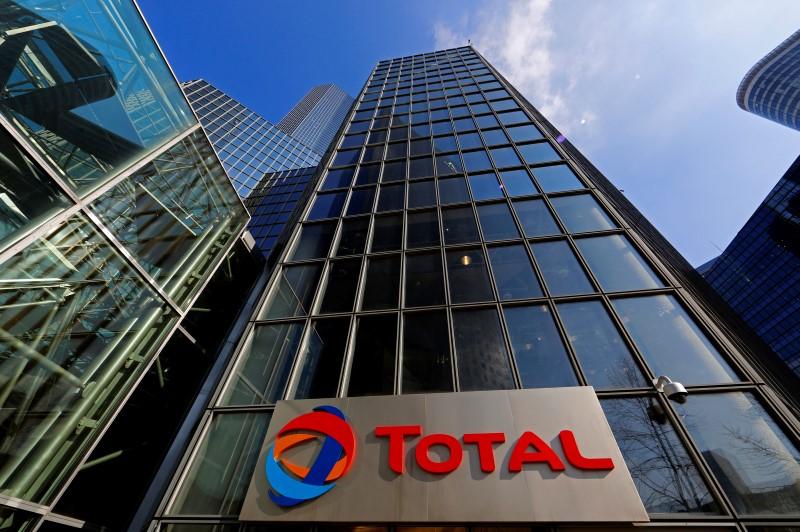
(TotalEnergies, 10.Oct.2023) — French daily newspaper Le Monde recently published an article mentioning the Mozambique LNG project. Detailed answers were provided to the questions of the journalist. However, given the lack of use of our responses in the article, and in the interests of transparency, the answers that we gave to the paper before the article was published are provided in full below.
1. Speaking to investors about the project on October 27, TotalEnergies CEO Patrick Pouyanné said that “the security situation has clearly improved”, suggesting, as announced before the summer, that work at the Afungi site would resume before the end of the year. Is this really the case?
Do you have a date in mind, given that, according to the local press, some of the service providers working for TotalEnergies’ Mozambican subsidiary have already returned to the site and are operating?
The Mozambique LNG project’s partners are Total E&P Mozambique Area 1 Limitada (26.5%), ENH Rovuma Área Um, SA (15%), Mitsui E&P Mozambique Area 1 Limited (20%), ONGC Videsh Rovuma Limited (10%), Beas Rovuma Energy Mozamique Limited (10%), BPRL Ventures Mozambique BV (10%) and PTTEP Mozambique Area 1 Limited (8.5%).
Given the deteriorating security situation in the northern part of Cabo Delgado, the project declared force majeure in April 2021.
The conflict in Cabo Delgado predates gas development in the region and is linked to many factors completely unconnected to Mozambique LNG.
The government of Mozambique is responsible for restoring security: that is the prerogative of a sovereign state.
Thanks to the efforts of the Mozambican government, with the support of the South African Development Community and Rwanda, the security situation has improved significantly in Cabo Delgado since 2021, and terrorist activities have decreased substantially.
Mozambique LNG monitors the security situation on an ongoing basis with the assistance of internal and external experts. Several audits have been conducted and have confirmed the significant improvement in the security situation in the Cabo Delgado region. In the light of these analyses, the goal for the partners of Mozambique LNG is to restart the project before the end of the year, subject to ongoing discussions with the contractors and their subcontractors.
The decision to restart the project depends on the ability to complete the project under good security conditions. This position is shared by all of Mozambique LNG’s partners.
Current activities on site are limited to strengthening security infrastructure and improving access roads.
In addition, Mozambique LNG has a major program of socio-economic initiatives for the local community to promote local economic development, contribute to the stabilization of the area (as a whole), and support local communities. This socio-economic program for Cabo Delgado is part of the Pamoja Tunaweza initiative.
This program followed on from the emergency humanitarian aid that was quickly deployed by Mozambique LNG after the attacks on Palma, particularly the supply of food.
2. On what objective elements is Mr Pouyanné’s risk analysis based?
As indicated in our answer to question 1, Mozambique LNG is closely monitoring the situation in Cabo Delgado, liaising with the authorities, and drawing on the analysis of internal and external security experts.
3. What will the security arrangements at the Afungi site and surrounding area look like in terms of organization (TotalEnergies security personnel, use of the Mozambican army, private security firms, etc.), manpower, and area covered?
The Afungi site is under the protection of government security forces. Mozambique LNG does not communicate on the security organization in place at the Mozambique LNG site. The measures taken are in line with TotalEnergies’ human rights principles (Guiding Principles on Business and Human Rights; VPSHR or Voluntary Principles on Security and Human Rights).
4. What is your assessment of the attack, launched on March 24, 2021 by the terrorist group Al-Shabaab, affiliated to the Islamic State, on the town of Palma and the surrounding area, which left more than 1,100 civilians dead or missing (including employees of service providers working for Mozambique LNG, recruited by TotalEnergies’ main subcontractor, CCSJV)?
To the best of our knowledge, there exists no official count of the number of dead and missing civilians following the attack on Palma, which is close to the project at the Afungi site, but it is true that this terrorist attack claimed many lives and caused part of the civilian population to flee.
During the emergency, Mozambique LNG lent its assistance, mobilizing significant human and material resources to support medical teams and the evacuation of the civilian population (see also the answer to question 5 below).
5. Two questions have been raised on this subject by NGOs and human rights lawyers, which concern TotalEnergies’ responsibilities to the project’s subcontractors and the local population in the context of this attack: why, given the growing terrorist threat in 2020, did TotalEnergies and its Mozambican subsidiary focus solely on evacuating the Group’s personnel (after two attacks near the Afungi site on December 29), without drawing up an evacuation plan for the subcontractors?
Your information is incorrect.
The evacuation plan – implemented in March 2021 in the aftermath of the attack on Palma, involved all personnel working on the Afungi site, including those of Mozambique LNG’s contractors and their subcontractors.
It should be noted that, following the intensification of the terrorist threat, the number of employees of Mozambique LNG, its contractors and their subcontractors was significantly reduced in early 2021. The remaining mobilized personnel of Mozambique LNG, the contractors and their subcontractors were accommodated on the Afungi site and were instructed to remain inside the site at all times for security reasons.
According to our information, during the attack on Palma, all Mozambique LNG personnel and their contractors and subcontractors were evacuated, along with a large number of civilians.
Approximately 2,500 people, half of whom were Mozambique LNG personnel and half civilians fleeing the combat zone, were evacuated from Afungi, mostly by sea. Mozambique LNG mobilized a ferry for this evacuation, which required an extraordinary mobilization of resources in the circumstances.
6. And why, once the attacks of March 24, 2021 had been launched, did TotalEnergies refuse to supply fuel to the private South African security firm DAG, which was under contract to the government of Mozambique and had taken the initiative to organize helicopter rescue missions for people (including subcontractors on the project) trapped in a hotel near Palma (the Amarula Palma Hotel) whose lives were in danger, and the local population?
As soon as the attacks had started and the situation had been assessed, Mozambique LNG lent its assistance to the Mozambican authorities, supplying fuel for the evacuation and rescue operations.
The runway at the Afungi site was used by the authorities and international organizations operating in the area to evacuate people by air.
Mozambique LNG employees distributed food and water to civilians sheltering at the entrance to the Afungi site.
The Mozambique LNG medical teams were mobilized to provide emergency medical assistance to injured civilians who were evacuated by air and sea from the Afungi site. The site’s hospital was also made available. Mozambique LNG also evacuated a large number of civilians by air and sea, using a ferry mobilized by the project, as stated above. The resources mobilized to deal with the situation were quite exceptional for a corporation.
As stated in the answer to question 4, all Mozambique LNG employees, contractors and subcontractors had been instructed to reside inside the Afungi site. According to our information, these instructions were passed on by Mozambique LNG’s contractors to their employees and subcontractors, and no contractor has informed Mozambique LNG of the presence of employees trapped in the Amarula Palma Hotel.
The private South African security firm DAG was contracted by the government of Mozambique to carry out offensive, military security missions against terrorist groups in northern Mozambique. Security at the Afungi site was provided by government security forces.
During 2020, several NGOs reported serious crimes against local people supposedly perpetrated by DAG. Given these serious allegations, Mozambique LNG decided that it would not provide any contribution or support to DAG’s offensive military operations
7. How do you answer the following questions?
1/Is it true that TotalEnergies and its subsidiary had no evacuation plan created for and in coordination with their subcontractors? Was the Group not responsible for evacuating all personnel working on the project, given that Mr Pouyanné stated on February 21, 2020 that “[my] absolute priority is security, not just of [our personnel], but also of [our] partners working onshore in Mozambique” and that he had personally ensured that security was increased around the Afungi site (by calling on the army)?
2/Is it also true that you refused to supply the fuel requested by DAG? If so, who took this decision and was the Paris HQ involved? And why, given that these operations saved several hundreds of lives but were halted at one point for lack of fuel? Several people were killed in an ambush as they tried to escape by road.
Mozambique LNG managed the crisis locally, implementing the measures required by the emergency. For more details, please see the answers to the previous questions, 4, 5 and 6.
8. More broadly, what action did you take when the attacks were launched on March 24, 2021?
Mozambique LNG followed its security procedures, including the pre-established evacuation plan.
Given the exceptional nature of the situation, moreover, Mozambique LNG went further than required by these procedures, evacuating a large number of civilians and providing emergency aid to civilians sheltering in the entrance of the site.
See also the answer to question 6
9. Why was the project not suspended at the end of 2020, after taking the decision to evacuate TotalEnergies personnel following a resurgence in terrorist attacks? Didn’t the US government’s decision to designate Al-Shabaab a terrorist organization on March 10, 2021, argue for suspension, which only came in April, after the attacks of March 24, 2021?
See the answer to question 5.
____________________

